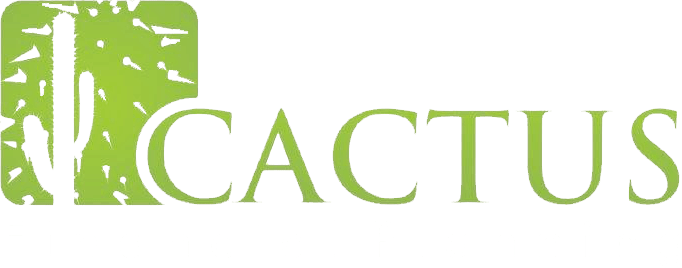
The Bank of England (BoE) interest rate rise made a splash in the headlines last year. However, the subsequent announcement that inflation continues to increase, and has since hit a six-year high, is one of the biggest causes for concern for savers.
As a result of the rate rise, many banks and building societies have increased their interest rates on both mortgages and savings accounts. Though most have chosen to increase the rates on interest paid to them, by a larger amount than on savings accounts where interest is paid out.
However, with low interest rates and high inflation, it’s never been more important to try to find a savings account which gets as close as possible to maintaining the real value of your capital. Even if it can’t provide a real return, a rate which is close to inflation means that less of your capital is lost to the increasing cost of living.
Here are our seven top tips to help you to identify the best savings account.
1. Define your goals first
Remember when teachers taught you all about S.M.A.R.T targets? Well, you’re finally going to use them ‘in the real world’.
Your savings goals should be:
Specific: How much do you want to save?How much capital do you already have that you need to find a return for?
Measurable: What interest rate do you need to beat inflation?
Achievable: Naming your goal, with reference to what it will provide for you, is a great way to keep yourself motivated.
Realistic: Keep your expectations within the available limits. Don’t plan for high returns while the BoE interest rate is low. If you have already built up capital, do everything realistically possible to maintain the real value.
Time-bound: Work out how long it will take you to reach your goal within realistic boundaries. You can even set yourself milestones along the way using the same calculation.
2. Work hard
The right savings account won’t fall into your lap through luck alone. As American writer and musician, James McBride, famously said:
“You make your own luck by working hard.”
If you want to access the best interest rates and find a product that is suited to your circumstances, you will need to take the time to shop around and get to know the different savings account types available.
This is an ongoing process. For example, if you choose an account with a fixed term, at the end of that term, you will need to find a new home for your savings. Likewise, if you choose an account with a variable rate, you need to monitor the rate as they are likely to be cut. At the end of the fixed-rate period, you can shop around and ensure that your money is kept in the best place at the time.
3. Look for tax-free returns
Focus on savings accounts which offer the opportunity to collect returns on a tax-free basis. Tax-free products, such as Cash ISAs, mean that you lose less to the taxman, leaving you to keep more of your returns.
Keep your Personal Savings Allowance in mind. For basic-rate taxpayers, this means that you can receive up to £1,000 in interest each year, without incurring tax. For higher rate taxpayers, the limit is £500.
Currently, a Cash ISA is probably a safer bet, as it has been around for decades and is hugely popular. Whereas, the Personal Savings Allowance has only been recently introduced and could be reversed in a future Budget.
Tax-free accounts mean that you can keep more of the interest and earnings from your capital. This will enable you to reach your savings goal faster.
4. Stay safe
The Financial Services Compensation Scheme (FSCS) is in place to protect the money you deposit into a savings account. The FSCS is positioned to compensate deposits lost due to the bank or building society becoming insolvent.
The scheme covers deposits and investment in a wide range of products, including bank and building society accounts. However, they are only able to replace:
- Deposits of up to £85,000 per institution per individual
- Temporary high values of up to £1 million
Therefore, it is important to keep your money safe by maintaining a balance which falls under the FSCS’ protection limits. That may mean splitting your savings between banks and building societies, but it does mean that you are more likely to receive compensation, should they default.
All institutions which are regulated by the Financial Conduct Authority (FCA) will be eligible for FSCS protection. You can check if a defaulted bank or building society is protected by the FSCS here.
5. Stay up to date
As new products become available and older savings accounts are closed, it is important to stay ahead of the game. By keeping an eye on developments, you will be able to tell when a new product, offering you better terms, enters the market.
For example, NS&I (National Savings and Investments) have recently relaunched their Guaranteed Growth and Income Bonds, which could be beneficial for those looking for guaranteed returns. Additionally, savings accounts rates are changing all the time. So, keeping your finger on the pulse is massively important if you are to find the best rates.
6. Think outside the box
Without doing any research, you could be forgiven for thinking that only the providers with the biggest marketing budget are offering something that will benefit you. However, not all firms are splashed across our televisions and billboards – but they still offer some great opportunities and benefits.
For example, think about the Islamic Banks. While not traditional savings accounts; because they pay profit, not interest, the predicted rates are attractive, and they are generally FSCS covered.
7. Be vigilant
Don’t be tempted by high return, low-risk investments. When interest rates are so low it’s a perfect time for scammers to try and tempt you with promises of double-digit, guaranteed returns.
No such thing exists.
Double and triple-check any offers and be especially wary if you receive unauthorised contact from providers looking to sign you up then and there. There are two rules to remember:
- If it sounds too good to be true, then it is!
- If they have no reason to be contacting you, you have no obligation to talk to them
For more information on savings, please get in touch.
